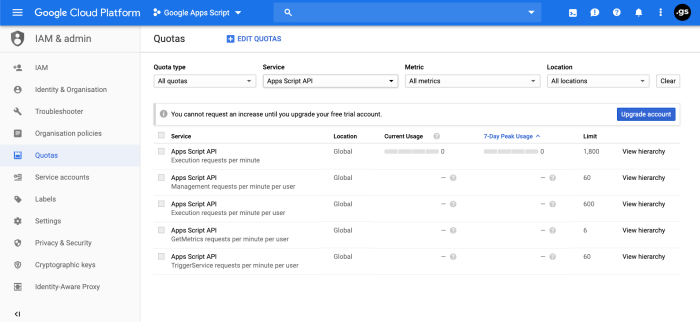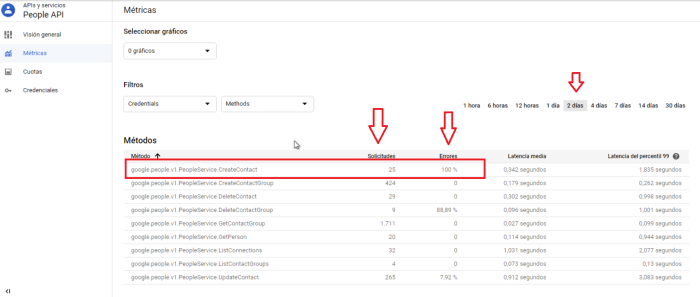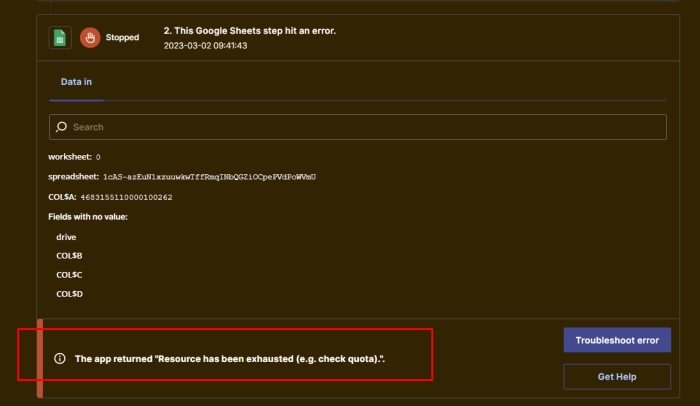How to get accepted into a top MBA program with a low GPA is a question that many aspiring business leaders grapple with. While a strong academic record is often a key factor in admissions decisions, it’s not the only one.
This article delves into strategies for overcoming the challenge of a low GPA and building a compelling application that showcases your potential.
The path to a top MBA program might seem daunting for those with a lower-than-ideal GPA, but it’s not insurmountable. By strategically highlighting your professional experience, demonstrating your commitment to personal growth, and crafting a tailored application that addresses your GPA concerns, you can position yourself as a competitive candidate.
Understanding the Challenge
Gaining admission to a top MBA program with a low GPA presents a significant hurdle, but it is not insurmountable. Understanding the typical expectations and the potential impact of a low GPA is crucial for strategizing your application.
Typical GPA Expectations
Top MBA programs generally have high GPA expectations, with most successful applicants having a GPA above 3.5. However, the specific GPA threshold varies depending on the program’s selectivity and the applicant pool. Some programs may consider a GPA of 3.0 or even lower, particularly if the applicant demonstrates exceptional strengths in other areas.
Impact of a Low GPA
A low GPA can negatively impact your admission chances as it may signal a lack of academic rigor or potential. However, it is not a guaranteed rejection. Admissions committees consider various factors beyond GPA, such as work experience, GMAT/GRE scores, letters of recommendation, essays, and extracurricular activities.
A strong application showcasing your achievements and potential can compensate for a lower GPA.
Overcoming the Challenge
Applicants with low GPAs can successfully overcome this challenge by demonstrating their commitment to academic excellence and professional growth. Here are some strategies:
- Strong GMAT/GRE Scores:Achieving a high score on the GMAT or GRE can demonstrate your analytical abilities and potential for academic success. Aim for a score that surpasses the program’s average, showcasing your dedication to improving your academic performance.
- Exceptional Work Experience:Highlight your professional achievements and leadership experiences. Showcase your contributions to your company, your ability to handle challenging tasks, and your leadership skills. Quantify your accomplishments whenever possible to demonstrate the impact of your work.
- Compelling Essays:Use your essays to explain your low GPA, acknowledging the reasons behind it and demonstrating your growth and commitment to academic excellence. Focus on your strengths, your career goals, and your reasons for pursuing an MBA.
- Strong Letters of Recommendation:Seek letters of recommendation from individuals who can attest to your academic abilities, work ethic, and potential for success. Choose recommenders who can provide specific examples of your achievements and strengths.
- Extracurricular Activities:Highlight your involvement in extracurricular activities that demonstrate your leadership, teamwork, and community engagement. These activities can showcase your well-rounded personality and your commitment to personal growth.
Strengthening Your Application Beyond GPA: How To Get Accepted Into A Top MBA Program With A Low GPA

While a low GPA might be a hurdle, it’s crucial to remember that it’s just one aspect of your application. Top MBA programs seek well-rounded individuals with diverse experiences and compelling stories. This section focuses on strategies to strengthen your application beyond your GPA, demonstrating your potential to succeed in a rigorous MBA program.
Highlighting Professional Experience and Achievements
To compensate for a lower GPA, you must showcase your professional experience and achievements effectively. This involves demonstrating your skills, leadership abilities, and impact in your previous roles.
- Quantify Your Accomplishments:Use metrics and data to demonstrate the tangible results of your work. For example, instead of saying “I managed a team,” state “I led a team of five engineers, increasing project efficiency by 20%.” This approach provides concrete evidence of your capabilities.
- Focus on Leadership and Impact:Emphasize instances where you took initiative, led projects, or made significant contributions to your organization. Highlight your leadership style, decision-making abilities, and the positive outcomes of your efforts.
- Tailor Your Experience to the Program:Research the specific programs you are applying to and identify their areas of focus. Align your professional experience with the program’s values and curriculum, demonstrating your interest and suitability for the program.
- Use Relevant Examples:In your essays and interviews, provide specific examples of your professional experiences that demonstrate your skills and achievements. These examples should be concise, engaging, and relevant to the program’s requirements.
Importance of a Strong GMAT/GRE Score, How to get accepted into a top MBA program with a low GPA
A strong GMAT/GRE score can significantly compensate for a low GPA. It demonstrates your analytical abilities, critical thinking skills, and quantitative reasoning skills, which are essential for success in an MBA program.
“A high GMAT/GRE score can be a powerful tool for showcasing your academic potential, even if your GPA is lower than ideal.”
- Target a Competitive Score:Research the average GMAT/GRE scores of accepted students at the programs you are applying to. Aim to achieve a score above the average to demonstrate your competitiveness.
- Prepare Thoroughly:Allocate sufficient time for preparation, utilizing study materials, practice tests, and expert guidance. This will help you improve your test-taking skills and achieve a strong score.
- Focus on Weak Areas:Identify your weaknesses in specific sections of the GMAT/GRE and focus your preparation efforts on improving those areas. This targeted approach can significantly enhance your score.
Crafting Compelling Essays
Your essays are a crucial opportunity to showcase your strengths, address your GPA, and demonstrate your suitability for the program.
- Address Your GPA Head-On:Be transparent and honest about your GPA in your essays. Explain the circumstances that led to your lower GPA, without making excuses. Focus on the lessons learned and how you have overcome those challenges.
- Highlight Your Strengths:Focus on your professional achievements, leadership experiences, and personal qualities that demonstrate your potential for success in the MBA program. Use compelling stories and specific examples to illustrate your skills and abilities.
- Demonstrate Your Fit:Connect your goals, aspirations, and experiences with the program’s values and curriculum. Explain how the MBA program will help you achieve your career objectives and contribute to the program’s community.
- Proofread Carefully:Ensure your essays are well-written, free of grammatical errors, and demonstrate your strong communication skills. Proofreading and editing your essays thoroughly before submitting them is crucial.
Demonstrating Your Potential

Beyond your GPA, showcasing your potential is crucial for admission to top MBA programs. This involves demonstrating your capabilities through compelling experiences, achievements, and personal qualities. Your application becomes a powerful narrative that highlights your potential to thrive in a demanding academic environment and contribute meaningfully to the program and beyond.
Leveraging Letters of Recommendation
Strong letters of recommendation are essential for demonstrating your potential to the admissions committee. They provide independent perspectives on your skills, abilities, and character, offering valuable insights that supplement your own application materials.
- Choose Recommenders Carefully:Select individuals who know you well, can speak to your strengths, and can provide specific examples of your accomplishments.
- Provide Clear Guidance:Give your recommenders detailed information about the program, your goals, and the specific qualities you want them to highlight.
- Follow Up:Stay in touch with your recommenders to ensure they have ample time to write strong letters and to provide any necessary information or updates.
Highlighting Extracurricular Activities
Extracurricular activities offer a platform to demonstrate your leadership, commitment, and ability to excel beyond the classroom. They showcase your ability to manage multiple responsibilities, work collaboratively, and make a positive impact.
- Leadership Roles:Actively seek leadership roles in organizations, clubs, or volunteer groups. This demonstrates your initiative, decision-making abilities, and ability to inspire others.
- Commitment and Impact:Focus on activities that demonstrate your commitment and the positive impact you have made.
- Diversity of Experiences:Engage in activities that reflect your diverse interests and showcase your ability to adapt to different environments.
Showcasing Personal Qualities and Unique Contributions
Beyond your academic record and extracurricular activities, it is crucial to showcase your personal qualities and unique contributions to the program. This involves highlighting your personality, values, and experiences that make you stand out.
- Personal Essay:Your essay is your opportunity to tell your story, share your motivations, and demonstrate your fit with the program’s values.
- Interviews:Prepare for interviews by practicing your responses to common questions and thinking about how your experiences and skills align with the program’s goals.
- Networking:Connect with current students and alumni to learn more about the program and to demonstrate your genuine interest.
Targeted Application Strategies
A well-structured application strategy is crucial for MBA applicants with lower GPAs. By targeting specific programs and tailoring your application, you can highlight your strengths and address your GPA concerns effectively.
Understanding Program Requirements
Understanding the specific admission criteria of each MBA program is essential. Carefully review each program’s website, brochures, and online resources. Pay close attention to the following:
- GPA Requirements:While some programs have minimum GPA requirements, others may be more flexible. Understanding the program’s GPA expectations will help you assess your competitiveness.
- Application Components:Analyze the weight given to each application component, such as GMAT/GRE scores, essays, letters of recommendation, and work experience. Identify areas where you can excel and compensate for a lower GPA.
- Program Focus:Research the program’s focus, specializations, and faculty expertise. Identify programs that align with your career goals and where your skills and experiences would be valuable.
- Diversity and Inclusivity:Explore programs that prioritize diversity and inclusivity. These programs often have holistic admission processes that consider factors beyond GPA, such as your unique experiences, leadership potential, and contributions to the community.
Crafting a Tailored Application Strategy
Once you have identified programs that align with your goals, you can craft a tailored application strategy that highlights your strengths and addresses your GPA concerns. Here are some tips:
- Focus on Your Strengths:Emphasize your work experience, leadership roles, and extracurricular activities that demonstrate your skills, abilities, and potential. Provide concrete examples of your accomplishments and how they have prepared you for an MBA program.
- Address Your GPA:Be transparent about your GPA in your essays and personal statements. Explain the circumstances that led to your GPA, such as personal challenges or academic choices. Focus on your academic growth and commitment to learning.
- Showcase Your Passion and Goals:Clearly articulate your career goals and how an MBA from the specific program will help you achieve them. Demonstrate a genuine interest in the program’s offerings and your alignment with its values.
- Strong Letters of Recommendation:Seek letters of recommendation from individuals who can speak to your abilities and potential. Choose recommenders who can highlight your strengths and provide specific examples of your accomplishments.
- Exceptional GMAT/GRE Scores:If your GPA is below average, strive for strong GMAT/GRE scores. A high score can demonstrate your academic aptitude and compensate for a lower GPA.
Communicating Your Career Goals Effectively
Clearly and concisely communicate your career goals and how the program will help you achieve them. Use your essays and interviews to:
- Connect your past experiences to your future goals:Show how your previous roles and experiences have shaped your aspirations and prepared you for an MBA.
- Demonstrate your research and understanding of the program:Highlight specific courses, faculty expertise, and resources that align with your career goals.
- Articulate your value proposition:Explain how your unique skills, experiences, and perspectives will contribute to the program and its community.
- Express your commitment to learning and growth:Show your eagerness to embrace the challenges and opportunities of an MBA program.
Wrap-Up

Earning a coveted spot in a top MBA program requires a holistic approach that goes beyond just academic scores. By leveraging your professional achievements, showcasing your leadership potential, and crafting a compelling narrative that highlights your unique strengths, you can overcome the challenge of a low GPA and demonstrate your readiness for the rigors of an elite business school.
Question Bank
What if my GPA is significantly lower than the average for a specific program?
While a low GPA can be a hurdle, it’s important to remember that admissions committees consider your entire application holistically. Focus on showcasing your strengths in other areas, such as professional experience, GMAT/GRE scores, essays, and letters of recommendation.
Can I retake courses to improve my GPA?
In some cases, retaking courses to improve your GPA can be beneficial, especially if you’re confident you can achieve a higher grade. However, consult with the admissions committee of your target program to understand their policies regarding retaken courses.
What are some resources available to help me prepare for the MBA application process?
Many resources can assist you in preparing for the MBA application process, including online guides, admissions consulting services, and mentorship programs. You can also connect with alumni and current students from your target programs to gain insights and advice.